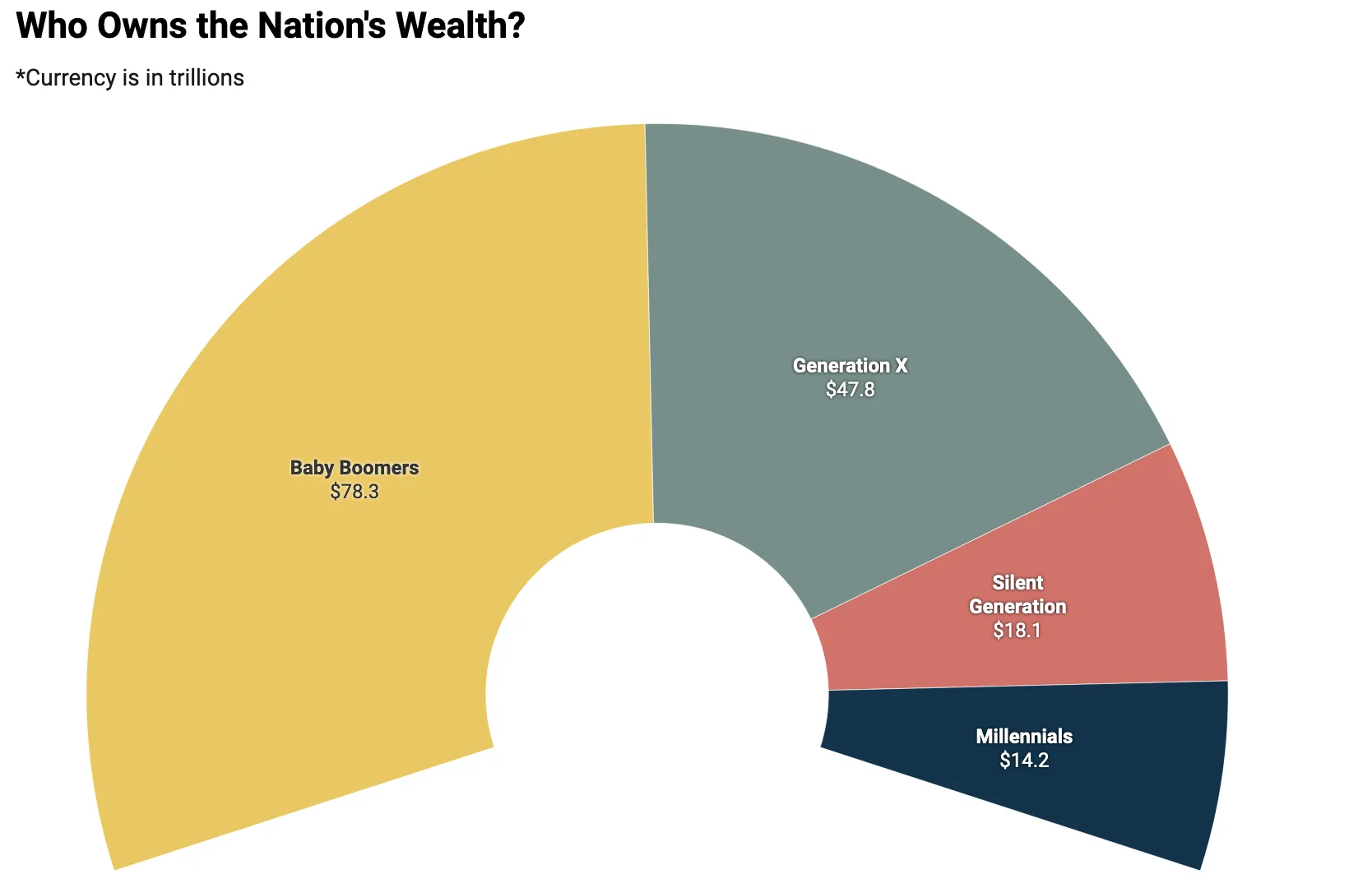July 2, 2024
'Great Wealth Transfer' is coming, and some funders are working to plant philanthropy money in rural communities

Graph by Sarah Melotte, The Daily Yonder, from Federal Reserve data
Over the next two decades, tremendous amounts of American wealth will transfer from generation to generation. "In the next 20 years, about $84 trillion will change hands. . . . Economists call it the Great Wealth Transfer," reports Sarah Melotte of The Daily Yonder. "Small-town philanthropies hope to capture some of that wealth for the benefit of historically underfunded rural communities. . . . Some experts worry the transfer might reinforce economic inequality [but] rural philanthropists are thinking about how people might invest this money to create healthier communities."
Ben Winchester, a rural sociologist with the University of Minnesota Extension, told Melotte, “You can get your cup under this wealth that potentially is going to be transferred, and pour it back into your town and bring that wealth here."
As part of his research, Winchester recently released a report on the Great Wealth Transfer in rural Minnesota. "The report found that in the coming decade, $5.6 billion will change hands across 10 central Minnesota counties," Melotte explains. "If local foundations could capture even one percent of that transfer, it could funnel $56 million into local infrastructure."
Philanthropic work can build additional supports across a wide range of needs within rural communities that have "often been left out of larger sources of both private and public funding," Melotte writes. “Many rural economies also suffer from long-term lack of investment. As a result, residents of nonmetropolitan counties are more likely to live in communities with persistent poverty."
Executive Director Erin Borla of the Roundhouse Foundation, a rural philanthropy in Oregon, asked Melotte, "If you’re from a farming community, or a logging family or whatever the rural livelihood was, does the next generation [who controls that wealth] live in that same community?” Melotte adds, "Borla said that the local wealth that is generated in a rural community can end up redirected to other economies throughout the country as people move away. Small-town foundations are aware of this trend, according to Borla, which is why they’re focused on directing those funds back into local projects."
Rural Minnesota is receiving wealth-transfer guidance from one of its foundations, CommunityGiving. Steve Joul, president of CommunityGiving, advises rural communities to envision what a healthier future for their town might look like. Joul told Melotte, "You need to have all the players at the table. It’s an open invitation to the community to come to the table to craft an idea and vision for where you want to go.”
According to Joul, everyone means everyone. Melotte adds, "Joul emphasized the importance of avoiding the common trap of only including residents with power and resources. Engaging more stakeholders helps mitigate worsening wealth inequality."